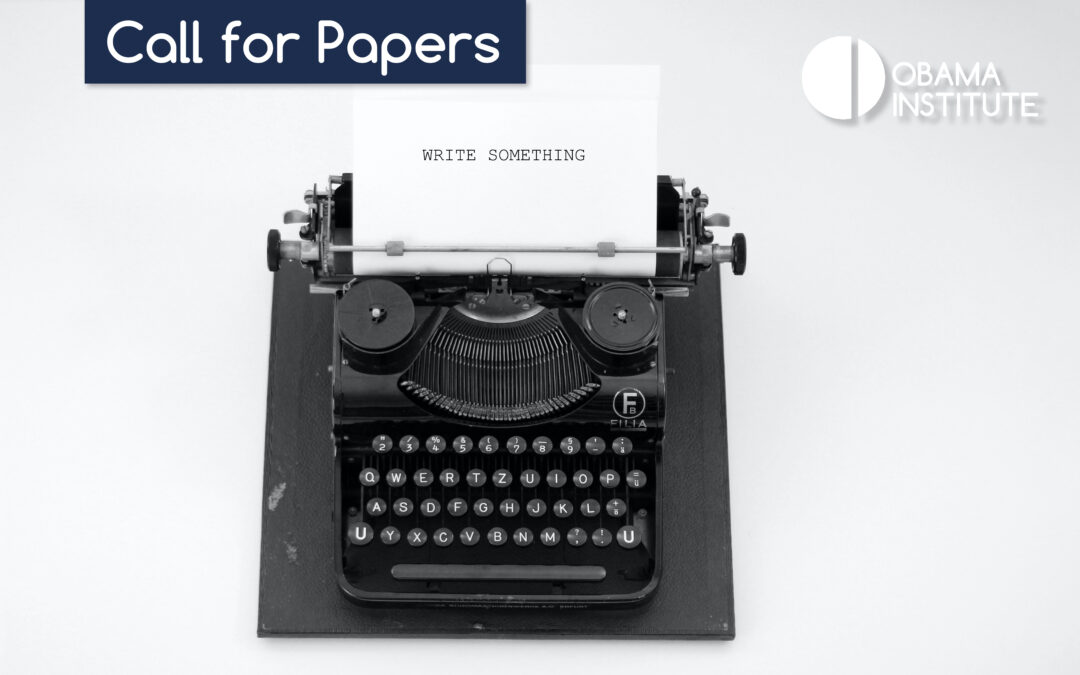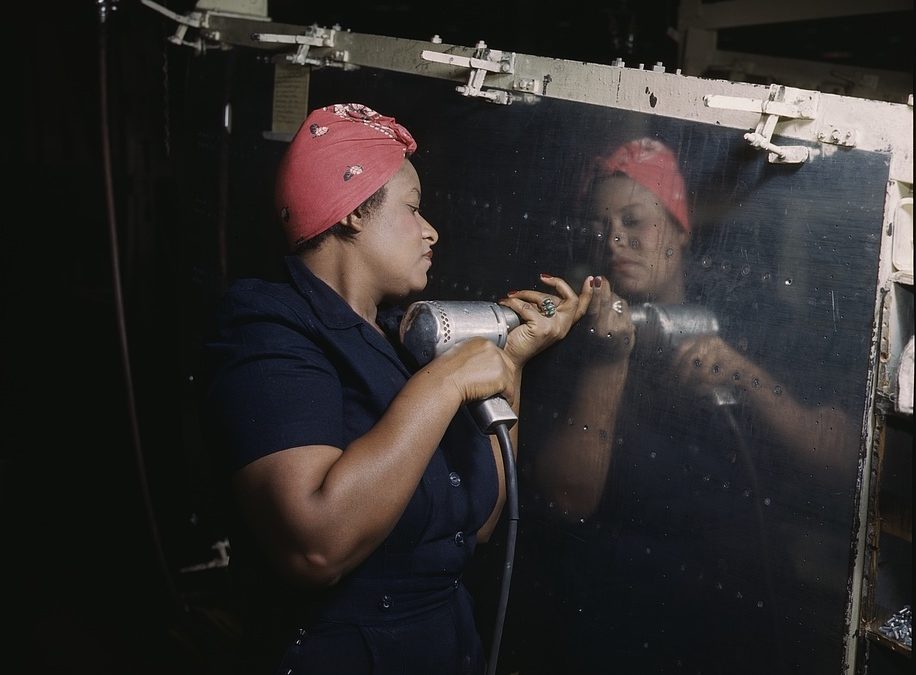
Call for Papers, Conferences, News
Call for Papers
Transcending Boundaries – Interdisciplinary Insights in Transpacific Studies
***EXTENDED DEADLINE: 20 September 2023***
Transpacific Studies Network Hybrid Conference
February 9-10, 2024
Obama Institute for Transnational American Studies, Johannes Gutenberg University Mainz
We seek contributions that explore connections across national and regional borders in and along the Pacific. The presentations (no format restrictions) should not exceed 20 minutes. The event will serve as a space to discuss early stage-research and on-going projects in this field. We welcome papers deploying new and innovative practices in Transpacific Studies and encourage in particular emerging scholars (current PhD candidates and recent graduates) to apply. This call, however, is not limited solely to scholars, we also welcome artists and practitioners who engage with the region in their work.
Possible topics may include:
- Film and television that culturally crosses the pacific ocean
- Literary works (novels, memoirs, poems, etc.) from and about (Trans)pacific regions
- Representations and/or performances of gender in (Trans)pacific regions
- (Trans)pacific mobilities and migration, including policy
- The Pacific and the blue humanities
- Climate change and the environment in (Trans)pacific regions
- (Trans-)Pacific issues of collective memory
- Understandings of geography/space/territory in relation to (Trans)pacific regions
- Negotiating cultural hybridity
- Revitalizations of (Trans)pacific traditional ecological epistemologies
- Reflections on practices and imaginations of borders/bordering in the Pacific
Abstracts of no more than 300 words should be submitted along with a 100-word biography to transpacificstudiesnetwork@gmail.com by 20 September 2023. Selected participants can expect to be notified by early October 2023.
For further information, please see the Call for Papers document or contact Sandra Meerwein.

Call for Papers, General, News, Opportunities
Call for Papers (abstract deadline 30 Sept. 2021):
Special Forum on Diagnosing Migrant Experience: Medical Humanities and Transnational American Studies
This special forum of the Journal of Transnational American Studies explores how Transnational American Studies and Medical Humanities can be mutually complementary. At their core, both disciplines work on, with, and beyond phenomena of multiple crossings of geographic, cultural, linguistic, epistemological, material, and physical borders.In doing so Transnational American Studies and Medical Humanities perpetually transgress their disciplinary borders. Hence, this special issue focuses on the crossroads of the two disciplines where each of these can fruitfully enhance the other.
In Medical Humanities approaches such as Narrative Medicine, the focus has been on the individual illness experience; migration-related questions such as racialization or trauma have only recently been coming to the fore. Here, migration is inextricably linked to questions of social justice. Seen from this perspective, Medical Humanities have been enriched through the perspective on migration studies. Similarly, issues of migration have also loomed large in Transnational American Studies. Work in this field has stressed the ways in which, through migrants’ perspectives, the US nation-state was seen from the outside and the inside simultaneously. At the same time, migrant experience has often been characterized by processes of racialized exclusion, economic poverty, and personal and collective trauma. These latter concerns have also centrally been investigated by the field of Medical Humanities. The current Covid-19 pandemic has once again shown that, in epidemiological terms, national boundaries cannot be policed. More than ever, there is a need for concepts and methodologies which enable us to think the medical and the transnational at one and the same time and ask for the role of literature and art within this process.
This special forum proposes that Transnational American Studies and Medical Humanities may fruitfully converge in reconfiguring different concepts of life. Through the lens of Transnational American Studies, this forum looks at how lives have been excluded by immigration bans and national border policing. In this context, Transnational American Studies emerges as a framework to make these lives visible by mapping them not only in a literal, but also in a figurative sense. Moreover, these border crossings often come at a price for those who cross the line in both a metaphorical and an actual sense: Migration and cultural invisibility can be accompanied by trauma and displacement. In this context, exhibitions and artworks on undocumented migration have emphasized the ways in which art and performance can go beyond narrative depictions of the traumas that can accompany forced migration and undocumented lives. At the intersection between migration and trauma, the borders that are being crossed are both land borders and waterways.
The experience of migration can also, quite literally, be combined with a lack of access to health care especially for undocumented migrants and unaccompanied minors. Seen from this perspective, migrant lives are in a form of double jeopardy as dramatically demonstrated, e.g., by the current distribution crisis of Covid-19 vaccines. In this context, literary narratives––novels, poems, short stories, biographies, and autobiographies––emerge as an alternative form of representation: First, they may resist both national policies of exclusion by literally writing migrant lives into the script of the nation. Second, they may defy a mere focus on medical diagnosis, especially where this diagnosis is divorced from cultural context. Defying these categories, these narratives may revolve around “unruly” subjects who refuse to be contained.
Linking illness, mental health, and trauma, such representations can also serve as a critique of health care systems. Nation-states can draw a line between those who are eligible for health care and those who are seen as “undeserving” of such care. Recent investigation as well as historical research has revealed that medical care and adequate nutrition can be withheld by state institutions. As forms of medical negligence or health injustice, such practices have been documented regarding residential schools for Native American children as well as vis-à-vis inmates of state prisons. In all these different contexts, Medical Humanities are closely connected to considerations of social justice and health equity. Instances of an absence of medical care, in turn, can be tied to the crossing of national or internal borders with which Transnational American Studies has also been concerned.
For this special forum, we seek contributions that explore the intricate connections between medical and migrant experiences and their cultural impact in past and present, such as
– Migration and mental health/trauma
– Migration and somatic manifestations
– Migration and challenges for health care systems
– Migration of medical knowledge
– Migration of medical professionals
– Migration and narrative medicine
– Migration and epi-/pandemics
– Migration and disability
– Migration and age
– Migration and global health/one health
– Migration and medical ethics
Please submit a 250-word abstract by September 30, 2021. The editors will review abstracts and invite full-length essays of 5,000–8,000 words. Please email abstracts and questions to Prof. Dr. Mita Banerjee (mita.banerjee@uni-mainz.de) and Dr. Davina Höll (davina.hoell@uni-tuebingen.de).
You can also find this call on the JTAS website.

Call for Papers, General, News
Dear colleagues,
as you can imagine, planning for the 2022 Annual Meeting of the Historians in the German Association of American Studies (DGfA) has been difficult because of the ongoing pandemic. To provide the best possible experience under the circumstances, we have decided to move the conference “Labor and Capital in U.S. History” to a “digital plus” format. This means that all panels will take place online, with an option for those wanting to come to Mainz to attend in-person if the pandemic situation improves.
Accordingly, we are also reissuing the call for papers with these changed conditions in mind.
The DGfA conference will take place February 11–12, 2022, virtually via Zoom and Gather and, hopefully, with an in-person option at the Johannes Gutenberg University Mainz, Germany. We are accepting applications for individual papers as well as panels, and we are opening the application for virtual poster presentations for doctoral students whose research topics do not fit the scope of the conference.
The new deadline for paper proposals and poster applications is November 30, 2021.
Please find the reissued call for papers as well as the application for doctoral poster presentations below:
Reissued Call for Papers: Labor and Immigration in U.S. History
Annual Meeting of the Historians in the German Association of American Studies (DGfA), February 11–12, 2022, Mainz and online
The transnational turn has introduced significant new perspectives on the history of labor and capitalism in the United States. While the state remains an important object of analysis, decentering the nation in labor history provides additional lenses that focus on circulations, interactions, and connections below or beyond the nation-state. According to Ian Tyrell, they focus attention on exchanges across national boundaries, the impact of asymmetrical power exerted by one nation, and networks of relations not contained by nation-states. In questioning a coherent, all-encompassing national narrative, the voices and visions of people and groups who have been marginalized in the context of a nationalist myopia are reclaimed. The experiences of non-citizens and migrants, labor sojourners and “birds of passage,” inhabitants of border regions, workers of international corporations, and new digital and remote workers help provide a more complete and more complex picture of what both labor and capital have meant in various historical contexts. Negotiations of labor rights, property rights, the rights of capital or corporate personship from the emergent nation-state to globalization accounts for different appraisals of labor heroes or radicals, benevolent tycoons or robber barons. Historians such as Kiran Klaus Patel, for example, root the history of the New Deal in a global context, connecting the history of labor and capital to that of U.S. hegemony in the twentieth century. Others, such as Julie Greene, connect the immigrant experience with American empire. Likewise, Donna Gabaccia focuses on the migration world of Italian workers, and Mae Ngai traces the role of “impossible” illegal immigrant workers in the making of America.
This conference seeks to put into communication various strands of the recent historiography in labor history. To this end, we invite both individual papers and panel proposals on topics including:
- the changing world of labor (industrialization, urbanization, post-industrialization, digitalization, etc.)
- labor strife
- labor and gender
- labor, race, ethnicity, and migration
- internationalization of labor markets
- working class culture and solidarity
- changing forms of employment (small-self-employed farmers to employees and factory workers, to the new gig-economy)
- labor and space (from home-production and small workshops, to industrial spaces, the open plan office, and call centers, to post-industrial co-working spaces, creative office playrooms, and work from home setups)
- labor in different geographical contexts
- the contemporary role and perception of capital and capitalists during a given historical era
Please send short CVs and abstracts for individual papers of no longer than 500 words and in the case of a panel proposal an additional introduction of no longer than 300 words to the organizers until November 30, 2021 at this address: dgfahist2022@uni-mainz.de
We encourage applications from scholars at all career levels. We invite doctoral students whose research is not related to the conference topic to join our virtual poster presentation. Please refer to the corresponding call for more information.
The DGfA conference will take place February 11–12, 2022, virtually via Zoom and Gather and, hopefully, with an in-person option at the Johannes Gutenberg University Mainz, Germany. All presentations will take place online via Zoom. If the pandemic situation improves, we will offer you the opportunity to come to Mainz and live-stream your presentation from our conference venue. In this case, we will provide information on accommodations and other material to help you organize your stay in Mainz.
Up to date information on the conference, including this call for papers, can always be found at:
http://www.obama-institute.com/labor-and-capital-in-u-s-history/
We are looking forward to receiving your paper proposal.
Axel Schäfer
Anja-Maria Bassimir
Torsten Kathke
Call for Doctoral Poster Presentations via Gather
The Annual Meeting of the Historians in the German Association of American Studies (DGfA) has long provided a forum for the presentation and discussion of ongoing PhD projects. While the pandemic complicates the organization, we want to continue that tradition, albeit adapted to the online environment. Accordingly, for the DGfA conference Labor and Capital in U.S. History from February 11–12, 2022, we are organizing a virtual poster presentation via Gather which will allow PhD students to exhibit their projects and discuss them with conference participants in individual virtual rooms.
Gather is a video-calling space that allows for virtual meetings and interactions. We will use this tool for a designated 2-hour time-slot during the conference as our forum for the poster presentations. Conference participants can wander around the virtual environment, look at the posters, and join PhD students in their individual virtual rooms for discussion.
We invite PhD students from the fields of American Studies and North-American History, especially those matriculated at a German University, to present their research.
The Gather format allows for the upload of posters with the following measures as JEPG files: portrait or landscape orientation, A0 format, at least 1000px x 600px, no transparent backgrounds, no more than 3MB. We need to collect the posters for uploading and accordingly you need to send us your finished poster by January 16, 2022, to the following e-mail address dgfahist2022@uni-mainz.de.
Please apply by sending us your name, academic discipline, and the name of the institution you are primarily affiliated with together with the title and a short description of your project not exceeding 500 words. Send your application to the following address by November 30, 2021: dgfahist2022@uni-mainz.de with the Subject line “Poster Presentation.”
The conference will take place online via Zoom and Gather. If the pandemic situation improves, we will offer you the opportunity to come to Mainz and join us at our conference venue. In this case, we will provide information on accommodations and other material to help you organize your stay in Mainz.
Up to date information on the conference, including this call for papers, can always be found at:
http://www.obama-institute.com/labor-and-capital-in-u-s-history/
We are looking forward to receiving your poster application.
Axel Schäfer
Anja-Maria Bassimir
Torsten Kathke

Call for Papers, General, News
Dear colleagues,
after this year’s annual meeting of the historians in the DGfA/GAAS had to move online, we hope that many of us will be able to come together next year for a more in-person event, though we are planning on virtual components for those who may still be kept from traveling.
The Annual Meeting of the Historians in the German Association for American Studies (DGfA) will take place February 11-13, 2022, at Johannes Gutenberg University Mainz, Germany.
We are delighted to present you with a call for papers for this event:
Call for Papers: Labor and Immigration in U.S. History
The transnational turn has introduced significant new perspectives on the history of labor and capitalism in the United States. While the state remains an important object of analysis, decentering the nation in labor history provides additional lenses that focus on circulations, interactions, and connections below or beyond the nation-state. According to Ian Tyrell, they focus attention on exchanges across national boundaries, the impact of asymmetrical power exerted by one nation, and networks of relations not contained by nation-states. In questioning a coherent, all-encompassing national narrative, the voices and visions of people and groups who have been marginalized in the context of a nationalist myopia are reclaimed. The experiences of non-citizens and migrants, labor sojourners and “birds of passage,” inhabitants of border regions, workers of international corporations, and new digital and remote workers help provide a more complete and more complex picture of what both labor and capital have meant in various historical contexts. Negotiations of labor rights, property rights, the rights of capital or corporate personship from the emergent nation-state to globalization accounts for different appraisals of labor heroes or radicals, benevolent tycoons or robber barons. Historians such as Kiran Klaus Patel, for example, root the history of the New Deal in a global context, connecting the history of labor and capital to that of U.S. hegemony in the twentieth century. Others, such as Julie Greene, connect the immigrant experience with American empire. Likewise, Donna Gabaccia focuses on the migration world of Italian workers, and Mae Ngai traces the role of “impossible” illegal immigrant workers in the making of America.
This conference seeks to put into communication various strands of the recent historiography in labor history. To this end, we invite both individual papers and panel proposals on topics including:
Please send short CVs and abstracts for individual papers of no longer than 500 words and in the case of a panel proposal an additional introduction of no longer than 300 words to the organizers until July 23, 2021 to this address: dgfahist2022@uni-mainz.de
- the changing world of labor (industrialization, urbanization, post-industrialization, digitalization, etc.)
- labor strife
- labor and gender
- labor, race, ethnicity, and migration
- internationalization of labor markets
- working class culture and solidarity
- changing forms of employment (small-self-employed farmers to employees and factory workers, to the new gig-economy)
- labor and space (from home-production and small workshops, to industrial spaces, the open plan office, and call centers, to post-industrial coworking spaces, creative office playrooms, and work from home setups)
- labor in different geographical contexts
- the contemporary role and perception of capital and capitalists during a given historical era
Due to continuing uncertainties regarding travel and in-person meetings because of the COVID-19 pandemic, this conference will take place in a hybrid format at Johannes Gutenberg University Mainz and online. When applying, please indicate whether you plan on attending in person or joining us virtually. For those attending in person, we will provide information on accommodation, but please make sure to organize your own stay in Mainz.
Up to date information on the conference, including this call for papers, can always be found at:
http://www.obama-institute.com/laborandcapital/
We hope to welcome many of you in Mainz next year!
Axel Schäfer
Anja-Maria Bassimir
Torsten Kathke

Call for Papers, General, News
CfP for Student Papers: aspeers 14 (2021): General Section and Topical Section “Narratives of American Colonization and Imperialism”
aspeers, the first and currently only MA-level peer-reviewed journal for American studies in Europe, will accept submissions by October 25, 2020.
In its fourteenth issue, aspeers will feature a general section and a topical one. While the general section accepts submissions on any American studies topic (e. g. revised versions of term papers or chapters from BA theses), the topical section will focus on the theme “Narratives of American Colonization and Imperialism”, calling for submissions that explore US literature, (popular) culture, society, history, politics, and media through the lenses of pride and shame.
Please find the two calls for papers below. For more information please have a look at http://www.aspeers.com/2021.
=== General Call for Papers ===
For the general section of its fourteenth issue, aspeers seeks outstanding academic writing demonstrating the excellence of graduate scholarship, the range of concerns scrutinized in the field, and the diversity of perspectives employed. We thus explicitly invite revised versions of term papers or chapters from theses written by students of European Master (and equivalent) programs. For this section, there are no topical limitations. Contributions should be up to 7,500 words (including abstract and list of works cited). The submission deadline is October 25, 2020.
aspeers 14 (2021) will also contain a topical section organized around the theme “Narratives of American Colonization and Imperialism.” We encourage European MA-level students to submit papers on this topic in particular. Please consult our topical Call for Submissions at www.aspeers.com/2021.
For more information, our submission guidelines, and a timetable of the review process for this issue, please refer to http://www.aspeers.com/submit. Please direct questions and inquiries to mailto:editors@aspeers.com.
=== Topical Call for Papers on “Narratives of American Colonization and Imperialism” ===
400 years ago, the Mayflower arrived on Patuxet land and established the settler colony of Plymouth. Just two years later, the Patuxet peoples were pronounced extinct. Despite or due to this settler violence, the Plymouth colony gave rise to the American tradition of “Thanksgiving” and the mythology of Europeans building a ‘City upon a Hill’ in America.
200 years later, in 1820, eighty-six free black ‘immigrants’ traversed the Atlantic to establish the first settlement in Liberia. This was sponsored by the American Colonization Society (ACS). The ACS’s core belief was that Black freedom—Black voting, Black landowning, Black civil liberties—was incompatible with (white) American ideals and democracy, and that founding colonies in Africa promised to thus ‘whiten’ the US.
Now, in 2020, the United States has hundreds of military bases worldwide, spreading across scores of different countries and housing, according to some estimates, about 200,000 troops. Even though the US is technically a nation, its ubiquitous global influence on economies, politics, and cultures constitutes it as an empire.
For its fourteenth issue, aspeers dedicates its topical section to “Narratives of American Colonization and Imperialism” and invites European graduate students to critically and analytically explore the United States’ long history and contemporary culture of colonial violence. We invite papers discussing American literature, history, (popular) culture, society, politics, and media through the lens of American colonization and imperialism. We also encourage authors to consider the manifold connections between the United States and other parts of the Americas, especially the Caribbean as well as Central and Latin America, in the context of these questions.
Topical submissions may consider:
- representations of colonization in literature, (popular) culture, and other media
- identities and sociopolitical group formations forged around narratives of ‘America’
- the role that narratives of America as a colonizing force have played in defining identities
- alternatives and resistance to US colonization and imperialism
- practices of ‘writing back’ against colonial or imperial rule
- constructions of race and gender in the context of (white) imperial violence
aspeers, the first and currently only graduate-level peer-reviewed journal of European American studies, encourages fellow MA students from all fields to reflect on the diverse meanings of “Narratives of American Colonization and Imperialism.” We welcome term papers, excerpts from theses, or papers specifically written for the fourteenth issue of aspeers by October 25, 2020. If you are seeking to publish work beyond this topic, please refer to our general Call for Papers. Please consult our submission guidelines and find some additional tips at http://www.aspeers.com/2021.

Call for Papers, News, Workshops
Research Group “Transnational Periodical Cultures”
Markets, Standardization and Adaptation (Workshop I)
Oct 17, 2018, 10 a.m.-6 p.m., Senatssaal (NatFak, 07-232)
The research group “Transnational Periodical Cultures” (Jutta Ernst, Dagmar von Hoff, Bjørn von Rimscha, Oliver Scheiding) holds a series of workshops on the following dates:
Oct 17, 2018 – Workshop I – Markets, Standardization and Adaptation
Nov 21, 2018 – Workshop II – Unternehmen und Akteure
Dec 12, 2018 – Workshop III – Zeitschriften und Digitalisierung
Jan 16, 2019 – Workshop III – Zeitschriften, Gestaltung, Design
You can find the program for the event on Oct 17, 2018 here.
If you are interested in attending one of the workshops or specific talks, please contact one of the organizers mentioned above.
For further information, please visit www.transnationalperiodicalcultures.net.





